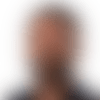Two major trades rocked the NFL landscape on Saturday, as the Houston Texans dealt Pro Bowl edge rusher Jadeveon Clowney to the Seattle Seahawks and, in a separate move, acquired 2016 first-round left tackle Laremy Tunsil and wide receiver Kenny Stills from the Miami Dolphins. Around the NFL's Jeremy Bergman dissects the deals and identifies who won and who lost.
Winners
Jadeveon Clowney: Bravo. After Houston's front-office follies resulted in the three-time Pro Bowler not receiving a contract extension commensurate with his perceived worth, Clowney worked his way out of a bad situation and toward a potentially more lucrative future. Utilizing the Le'Veon Bell playbook, Clowney bet on himself and refused to sign the roughly $17 million franchise tag, leaving the Texans without any assurance that he'd return for the 2019 season. When he didn't like the way contract and trade talks were going with Houston's front office, Clowney axed his longtime agent, Bus Cook (who Clowney reportedly has since rehired). Shortly thereafter, word leaked that the edge rusher had no interest in playing for the Miami Dolphins, with whom Houston was attempting a trade, and was willing to miss regular-season games as he waited for a resolution. Only when Clowney played his unique leverage right did he get what he wanted: to play for a contender and one who may be more willing than the Texans to sign him long term.
Plus, as an unintended consequence of not receiving the extension he wanted this offseason, the former first overall pick might just get paid like the star edge rusher he is after all. With star pass rushers like Trey Flowers, Frank Clark, Dee Ford and DeMarcus Lawrence all receiving mega-extensions over the past several months, Clowney's floor for a long-term contract should start at around $20 million a year.
The concept of self-determination in football: We don't often see evidence of such blatant self-determination in football like we do in other pro sports. In a star-driven league like the NBA, for example, superstars determining their desired locations in free agency is an annual rite. Think Kevin Durant to the Warriors in 2016, or LeBron James to the Lakers in 2018, or Paul George to the Clippers in 2019 or ... well, K.D. again this summer, this time to the Nets. Free agency in the NBA feels like free agency. In the NFL, that's far more uncommon due to multiple factors, including the current CBA. A team can control a first-round pick like Clowney for up to seven years (fifth-year option, two franchise tags) without giving him an extension. That is, unless the player is willing to sacrifice a year's pay as Le'Veon Bell did last season, and as it appeared Clowney was willing to do this year.
By not signing his franchise tag, Clowney was willing to give up around $1 million per week to not play football. When Houston gave him permission to speak with the Dolphins as a potential trade partner last weekend, an offended Clowney was reportedly "adamant" that he not be traded to Miami, and that actually meant something! For Houston to even trade Clowney for parts, the defensive end needed to sign the franchise tag it handed him. Clowney had the power to sign off on his destination, choosing his next location from under another team's control.
That's rare power for a player in the NFL, and Clowney harnessed it with patience and precision. How often other franchise-tagged players will be able to execute such moves in the future, however, will depend on the players' willingness to sit out (and potentially take a massive financial hit) and whether teams are desperate enough to settle for bits in a trade.
John Schneider, again: When was the last time he lost a trade? Schneider took a risk when he sent Seattle's rising pass rusher Frank Clark to Kansas City instead of extending him. But the Seahawks have now replaced Clark (35 sacks since 2015) with Clowney (29 sacks), used the acquired picks to draft another pass rusher in L.J. Collier, linebacker Cody Barton and still have a 2020 second-round pick left over. Plus, even if Clowney leaves in the offseason without a long-term deal from the Seahawks, Seattle will likely recoup a compensatory third-round pick, negating the selection it traded to Houston on Saturday.
Not convinced of Schneider's powers? Let's recount Seattle's offseason further: He orchestrated historic extensions for his offensive and defensive quarterbacks (Russell Wilson, Bobby Wagner), landed arguably the top free-agent edge rusher in Ezekiel Ansah and still made out with Clowney and a well-stocked front seven without mortgaging Seattle's future. There's a reason the Seahawks are always relevant in the NFC, despite significant roster turnover, and he doesn't wear Air Monarchs.
Deshaun Watson: The Texans have been maligned by average to well-below-average offensive line play for years, and they only worsened the problem when they traded left tackle Duane Brown to the Seahawks in 2017. This annual issue was illustrated last season by one number: 62. That's how many sacks Watson took -- the most in the league! -- in his return from an ACL injury that ended his rookie season prematurely. Houston's franchise signal-caller took that much punishment and still led the Texans to a division title. With Tunsil in tow, the Texans hope that number decreases appreciably and their offense produces even more explosive plays in 2019.
Laremy Tunsil: Say hello to your future highest-paid left tackle in NFL history. Houston gave up two first-round picks, a second-rounder and two position players for the rights to sign Tunsil. The Texans didn't surrender that bounty just to let the first-rounder leave when his contract expires in two years, or get tied up in another franchise tag mess, which means they're going to need to pay up. Big time. Tunsil's come a long way from his draft-day debacle.
Jacob Martin: Few non-insiders had even heard of Martin before Seattle included him in Saturday's mega-trade to Houston. He might have been a laugh line on Twitter, but the word from at least one NFL general manager is positive on the second-year linebacker out of Temple, who logged three sacks and two forced fumbles on 225 defensive snaps and 279 special-teams snaps for the Seahawks last year.
Fans of the #FishTank: The rebuild is officially on in South Beach. The Dolphins swapping their star left tackle (security on the field) for two first-round picks and a second-rounder (security off the field) is as sure a sign as any that Brian Flores' Fins are playing the long-game down in Miami. That, and starting a 36-year-old Ryan Fitzpatrick with nothing left to prove instead of the 22-year-old quarterback for whom they traded a second-round selection.
Draw
Brian Gaine: On one hand, the former Texans exec's reported preference to extend Clowney looks a lot better in hindsight. On the other, Gaine's misplaced patience on draft night enabled the Eagles to hop Houston and select Andre Dillard (the class' top left tackle), forced the Texans to take Tytus Howard at No. 23 overall (he ranked 50th on NFL.com draft guru Daniel Jeremiah's final top 100 list) and inspired Saturday's trade for Laremy Tunsil. Houston's chronic inability to protect the quarterback did not start with Gaine's employment, but he struck out looking when the opportunity to solve the issue presented itself. Patching the issue with Matt Kalil didn't help matters either.
Losers
Bill O'Brien: Heavy is the head that wears multiple hats. In the span of less than three months, O'Brien has affected wholesale changes in the Texans' front office, seizing the personnel reins after GM Brian Gaine's firing, attempting a failed signing of Patriots personnel exec Nick Caserio (one that nearly prompted legal action), neglecting to extend Clowney before the July 15 deadline, trading the perennial all-star for quarters on the dollar and then mortgaging the future to upgrade the left tackle spot he'd spent years struggling to develop. It's too early to tell if cutting ties with Clowney, O'Brien's first selection as head coach of the Texans, and trading multiple top picks for Tunsil will be the adverse regime-defining decisions that they feel like in the now. But the decisions unmistakably and irrefutably have O'Brien's stamp of approval.
If O'Brien is not a loser in terms of status within his organization (emphasis on his), he is certainly getting knocked in the court of public football opinion. The events of the last few months suggest O'Brien and the Texans completely mismanaged the Clowney situation. When Gaine was employed and Clowney was not yet tagged, Houston kicked the can down the road on the pass rusher, tagging him instead of making a definitive assessment on his future with the club. In March, the Texans could have traded Clowney anywhere and for far more than what Seattle shelled out for his services Saturday. But with a lack of decisiveness came an eventual lack of return.
Houston's acquisition of a surefire franchise blindside blocker on Saturday was ballsy and filled a massive hole on a Texans offense ready to break out. But it was also long overdue. O'Brien has been with Houston going on six years now, and despite his three division titles, the defining characteristic of his Texans teams have been inconsistent quarterbacking and ever shoddier offensive line play. The snake eating its own tail week after week. Houston has tried to draft and develop young tackles, but Julie'n Davenport and Martinas Rankin (picks from 2017 and 2018) were trade bait on Saturday, and neither 2019 selection, Tytus Howard nor Max Scharping, is assured to start Week 1. Finally in charge, O'Brien paid a high premium to make up for his failings in years past.
And yet O'Brien owns a winning record (42-38) and three AFC South titles -- the most first-place finishes of any head coach in the 18-year-old franchise's young history. But O'Brien's cult of personality might not be long for Houston if the Texans don't win a Luck-less division and he doesn't improve upon his 1-3 postseason record. Front-facing disappointments like this Clowney episode and desperation moves like the Tunsil trade will become harder to bear if the early-January exits continue.
O'Brien needs to win now.
NFC West quarterbacks: What a joy it will be for Russell Wilson, Jared Goff, Jimmy Garoppolo and Kyler Murray to stare down this division's pass rushing duos. Seattle turned Frank Clark into a trio of Clowney, Ansah and Collier. San Francisco boasts arguably the league's deepest defensive line, led by DeForest Buckner, Dee Ford and, eventually, Nick Bosa. Chandler Jones and Terrell Suggs figure to meet at the quarterback a few times in the desert. Oh, and some schmo named Aaron Donald. The NFC West is somehow flush with both fresh-faced offensive coaches and the league's top pass-rush groups.
Josh Rosen (and Ryan Fitzpatrick, but mostly Josh Rosen): Rosen can't catch a break. One year after getting lit up behind a patchwork offensive line in Arizona and being traded to Miami where he lost the Week 1 starting job to a 36-year-old journeyman with a penchant for picks, the Dolphins are leaving him out to dry. With Tunsil out the door, Miami will go into the season with one of the league's weakest and thinnest lines. The Dolphins were already remaking the front on the fly before trading Tunsil, adding Evan Boehm and Danny Isidora via trades on Friday. Neither of those players, however, are tackles. Filling Tunsil's role could be Julie'n Davenport, a young tackle Miami acquired in the Tunsil trade, who ranked first in penalties (16) and second in sacks allowed (12) among tackles last season, per Pro Football Focus. That latter stat should worry Rosen, or whoever's under center in Miami this season.
Follow Jeremy Bergman on Twitter @JABergman.












